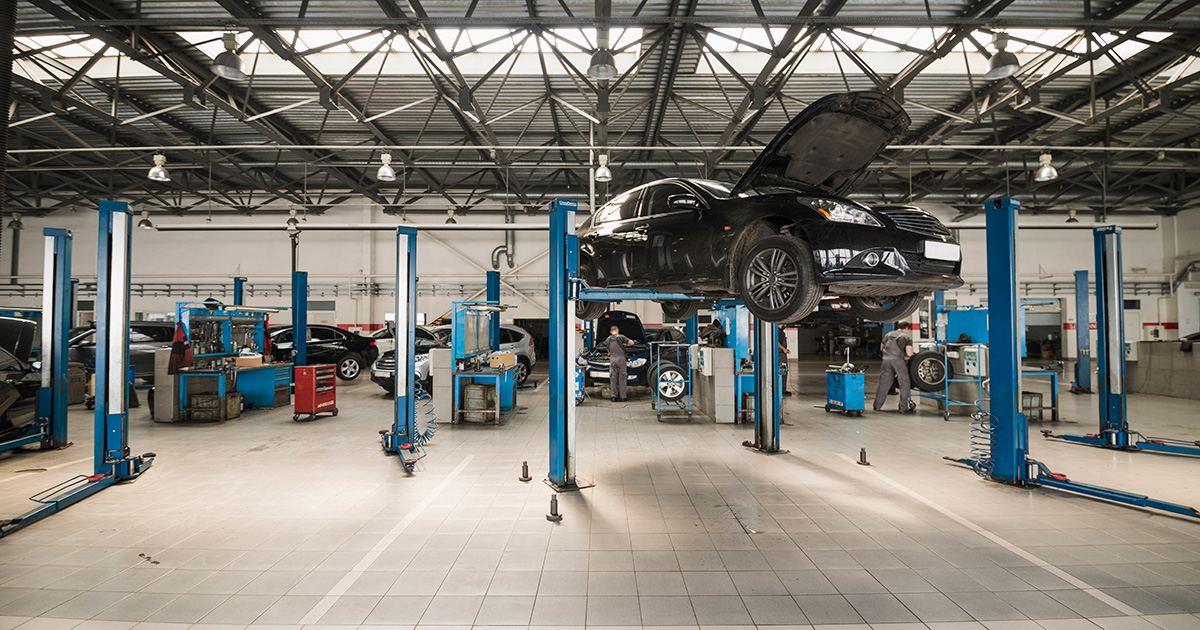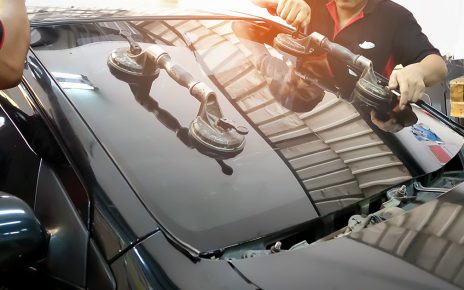Introduction to Automotive Technicians and Mechanics
Revving engines, precision tools, and a passion for problem-solving – the world of automotive repair is filled with skilled professionals who keep our vehicles running smoothly. But have you ever wondered about the difference between an automotive technician and a mechanic? While these terms are often used interchangeably, there are some important distinctions to be aware of. In this blog post, we’ll explore the unique roles, education requirements, salary prospects, and career paths of both automotive technicians and mechanics. Whether you’re considering entering the field or simply curious about what goes on behind the scenes at your local garage, buckle up as we dive into this fascinating comparison!
Education and Training Requirements for Each Profession
Education and Training Requirements for Each Profession
When it comes to education and training, both automotive technicians and mechanics require a solid foundation in the field. However, there are some differences in the level of formal education needed.
For aspiring automotive technicians, most employers prefer candidates who have completed a post-secondary program in automotive technology. These programs typically last anywhere from six months to two years and provide students with hands-on experience working with various types of vehicles. Additionally, many programs offer certifications that can enhance job prospects.
On the other hand, mechanics generally receive their training through on-the-job experience or vocational schools. While formal education is not always required for this profession, completing a certification program can boost employment opportunities.
Both professions also benefit from staying up-to-date with advancements in automobile technology by participating in continuing education courses or manufacturer-specific training programs.
While formal education requirements differ between automotive technicians and mechanics, both paths require technical knowledge gained through either post-secondary programs or on-the-job experience. Continuous learning is crucial to keeping pace with industry developments!
Job Responsibilities and Duties of Automotive Technicians vs. Mechanics
Automotive Technicians and Mechanics both play crucial roles in keeping vehicles running smoothly, but their job responsibilities and duties differ slightly. Let’s explore the distinctions between these two professions.
As an Automotive Technician, your primary focus is on diagnosing and repairing various vehicle systems, such as engines, brakes, electrical components, and transmissions. You’ll use specialized tools to identify issues, perform maintenance tasks like oil changes and tire rotations, and ensure that vehicles meet safety standards.
On the other hand, Mechanics have a broader scope of work. They not only diagnose problems but also specialize in fixing larger machinery like trucks or heavy equipment. Their expertise extends beyond just automobiles to include industrial equipment repairs.
Both Automotive Technicians and Mechanics rely on technical manuals for guidance during repairs. However, Mechanics often deal with more complex diagnostic procedures due to the diverse range of machinery they encounter.
In addition to repair work, Automotive Technicians are responsible for performing routine inspections of vehicles to identify potential issues before they become major problems. They may also provide customer service by explaining necessary repairs or maintenance procedures.
While there is some overlap in their duties—the main difference lies in the scope of work each profession handles. Regardless of which path you choose – whether it be as an Automotive Technician or Mechanic – one thing remains certain: you’ll play a vital role in maintaining our cars’ performance on the road!
Salary and Job Outlook for Both Professions
Salary and Job Outlook for Both Professions:
When it comes to salary and job outlook, both automotive technicians and mechanics can find opportunities in the ever-evolving automotive industry. While salaries may vary depending on factors such as experience, location, and employer, both professions offer competitive earning potential.
Automotive technicians typically start their careers with a lower salary compared to mechanics due to their focus on routine maintenance tasks. However, as they gain more experience and expertise in specialized areas such as electrical systems or hybrid technology, their earning potential increases.
On the other hand, mechanics often have a higher starting salary since they are responsible for diagnosing complex issues and performing major repairs. Their extensive knowledge of engine repair, transmission systems, brakes, and other components makes them valuable assets in the industry.
In terms of job outlook, both professions show promising prospects. As technology continues to advance within vehicles – think electric vehicles or autonomous driving – skilled individuals who can adapt to these changes will be in high demand.
Additionally, with an increasing number of older vehicles still on the road requiring regular maintenance and repairs alongside newer models flooding the market each year; there is a steady need for qualified professionals across the board.
Whether you choose to pursue a career as an automotive technician or mechanic; rest assured that your skills will always be needed in this ever-changing field!
Advancements and Specializations in the Field
Advancements and Specializations in the Field
The automotive industry is constantly evolving, and so are the roles of automotive technicians and mechanics. As technology continues to advance, professionals in this field must stay up-to-date with the latest advancements and specialize in specific areas to excel in their careers.
One area of advancement is the integration of computer systems into vehicles. Automotive technicians now need a strong understanding of diagnostic software and electronic systems to effectively troubleshoot issues. This specialization allows them to analyze complex data from sensors and identify problems more efficiently.
Another specialization gaining popularity is hybrid or electric vehicle repair. With an increasing focus on sustainability, many automakers are producing eco-friendly models that require specialized knowledge for maintenance and repairs. Technicians who specialize in this area can ensure these vehicles run smoothly while minimizing their impact on the environment.
Additionally, there is a growing demand for specialists in specific vehicle brands or types. Some technicians choose to work exclusively with certain manufacturers’ models or focus on luxury cars. By honing their skills on a particular brand or type of vehicle, they become experts at diagnosing unique problems and providing tailored solutions.
Furthermore, as autonomous driving technology continues to develop, there will be an increased need for technicians skilled in advanced driver-assistance systems (ADAS). These systems rely on various sensors and cameras that require precise calibration for optimal performance. Technicians specializing in ADAS can ensure these safety features function correctly, keeping drivers safe on the road.
Advancements within the automotive industry have opened doors for specialized careers within the fields of automotive technology and mechanics. Whether it’s mastering computer diagnostics, specializing in hybrid vehicles, focusing on particular brands/models or becoming an expert in ADAS calibration – there are plenty of opportunities for individuals passionate about pursuing niche areas within this dynamic industry!
Pros and Cons of Being an Automotive Technician or Mechanic
Pros and Cons of Being an Automotive Technician or Mechanic
Being an automotive technician or mechanic can be a rewarding career choice, but like any profession, it comes with its own set of pros and cons. Let’s explore some of the advantages and disadvantages of working in these fields.
One major advantage of being an automotive technician is the opportunity to work with advanced technology. As vehicles become more complex, technicians are constantly learning new skills to keep up with the latest advancements. This can be exciting for individuals who enjoy staying on top of industry trends and enjoy problem-solving.
Another perk is job security. With millions of cars on the road that require regular maintenance and repairs, there will always be a demand for skilled automotive technicians and mechanics. This means you’re less likely to face unemployment compared to other professions.
Additionally, both careers offer potential for growth and specialization. Whether you choose to focus on certain types of vehicles or specialize in specific areas such as diagnostics or electrical systems, there are numerous opportunities to expand your knowledge and expertise.
On the downside, working as an automotive technician or mechanic often involves physical labor which can lead to fatigue or strain over time. The nature of the job requires standing for long periods, lifting heavy objects, and working in uncomfortable positions.
Furthermore, both professions may involve exposure to hazardous materials such as chemicals used in cleaning solutions or vehicle fluids. While safety precautions are usually taken in professional settings, it’s important to consider this aspect if you have sensitivities or allergies.
Many people find that being an automotive technician can be mentally demanding due to the need for constant problem-solving under pressure. Troubleshooting complex issues within tight timeframes can sometimes add stress levels during busy periods.
In conclusion…
Deciding between becoming an automotive technician or mechanic ultimately depends on your interests,
skills,
and personal preferences.
Consider what aspects appeal most
to you – whether it’s
the excitement
of troubleshooting cutting-edge technology
or the satisfaction
of working with your hands.
Remember to weigh both the pros
Conclusion: Which Career Path is Right for You?
Conclusion: Which Career Path is Right for You?
After exploring the differences between automotive technicians and mechanics, you may find yourself wondering which career path is right for you. Both professions offer exciting opportunities in the automotive industry, but they do have distinct characteristics to consider.
If you prefer a hands-on approach and enjoy problem-solving, becoming an automotive technician might be the ideal choice for you. With their focus on diagnosing and repairing vehicles, technicians play a crucial role in keeping cars running smoothly. The specialized training involved allows them to work with advanced technology and stay up-to-date with the latest advancements in vehicle systems.
On the other hand, if you have a deep passion for understanding how things work from top to bottom, pursuing a career as a mechanic could be your calling. Mechanics possess extensive knowledge of all aspects of automobile repair and maintenance. They excel at troubleshooting complex issues and performing comprehensive repairs that span across various systems within a vehicle.
When it comes to education requirements, both paths demand dedication and ongoing learning. Automotive technicians typically complete certificate programs or associate degrees from technical schools or community colleges. In contrast, mechanics often enter the field through apprenticeships or gain experience by working alongside experienced professionals.
In terms of salary potential and job outlook, both careers offer competitive compensation depending on experience level and qualifications. The Bureau of Labor Statistics predicts steady growth in employment opportunities for both professions over the coming years due to increased reliance on automobiles.
Advancements within these fields are also worth mentioning as they provide avenues for specialization based on personal interests or areas of expertise. Technicians can pursue certifications in specific manufacturers’ systems or become experts in hybrid/electric vehicles as society shifts towards greener transportation solutions. Mechanics can choose to specialize further by focusing on specific types of vehicles like motorcycles or heavy-duty trucks.
As with any profession, there are pros and cons to consider when making this decision:
Pros:
– Hands-on work
– Job stability
– Opportunities for specialization
– Continued learning and skill development
Cons:
– Physical demands
–




